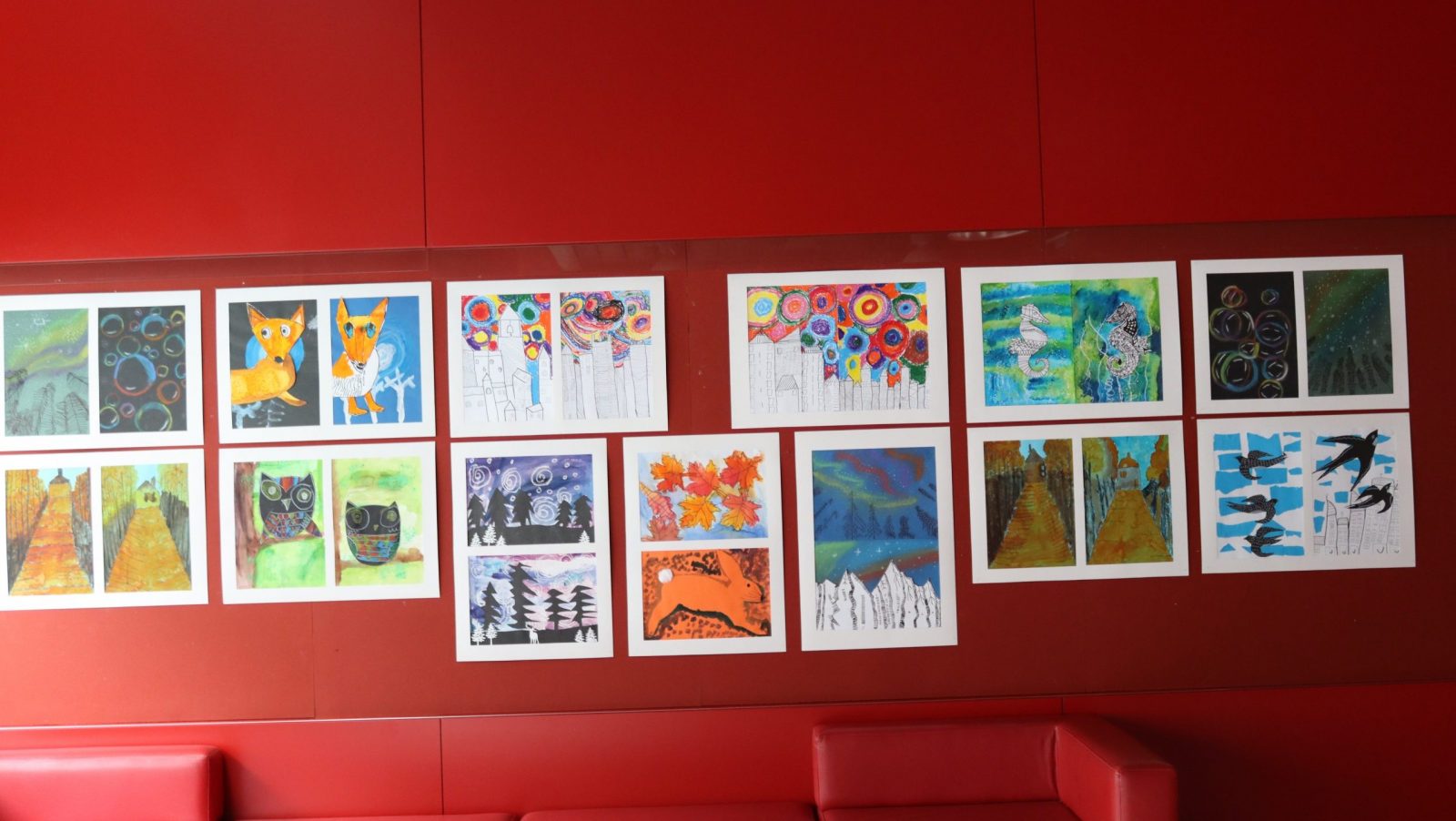Autor: Marek Kokeš
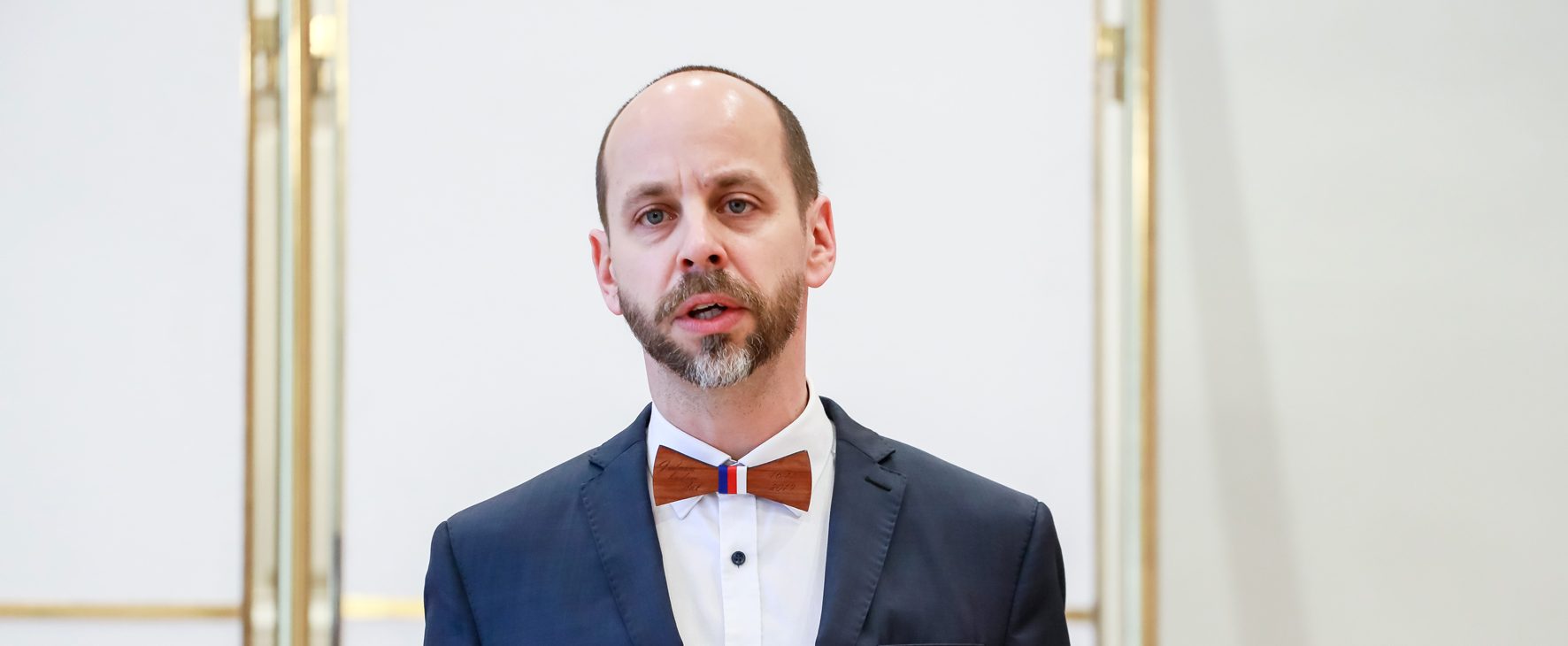
MgA. Petr Michálek to become the new rector of JAMU
MgA. Petr Michálek was elected the new rector of the Janáček Academy of Music and Performing Arts at today’s meeting of the JAMU Academic Senate, and he will assume this highest academic position at the beginning of February 2022.
Chairman of the JAMU Academic Senate doc. Mgr. Roman Novozámský opened today’s meeting two hours before noon and welcomed the senators present and three candidates for the rector’s chair. All twelve senators were present, four of them remotely via the Internet, either due to the epidemic or for medical reasons. The Chairman stated that the Senate had a quorum. The whole meeting was translated into Czech sign language and broadcast online on YouTube, where the academic community and the public could submit their questions for the three candidates.
The candidates drew lots and presented their concepts in the following order. MgA Petr Michálek spoke first, followed by prof. Barbara Maria Willi, Ph.D. and finally by doc. MgA. Vít Spilka. In the first round of elections, prof. Barbara Maria Willi, Ph.D. received five valid votes, doc. MgA. Vít Spilka received one valid vote and MgA. Petr Michálek received six votes. The senators voted online via the JAMU information system.
The second round of elections was opened by a simultaneous debate of both candidates. Prof. Barbara Maria Willi, Ph.D. subsequently received five valid votes and MgA. Petr Michálek received seven votes. The Chairman of the JAMU Academic Senate doc. Mgr. Roman Novozámský then stated that MgA. Petr Michálek was elected rector in the second round. In his speech, the current director of the Zlín Municipal Theatre and the winning candidate of the JAMU rectoral election recalled three key teachers and personalities he met during his studies at the Brno Academy: professors Bořivoj Srba, Eva Stehlíková and Miroslav Plešák. “I want to be the rector of communication. I am not a fan of starting over and over again. I believe in continuity. I know how to ask questions and I can connect people,” Michálek remarked in his speech, among other things. His term of office will be four years. Michálek, 44, studied theatre dramaturgy and pursued acting and directing. He has been the director of the Zlín Theatre since 2010. He was also involved in regional politics through the Mayors and Independents party.
Mgr. Luboš Mareček, Ph.D.
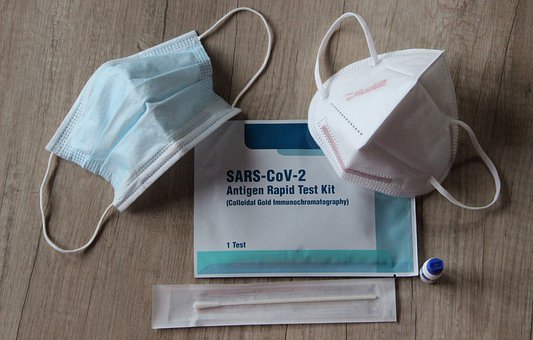
Mandatory testing (from 22 November 2021)
The following obligations of JAMU and its employees result from an extraordinary measure of the Ministry of Health.
Obligations of JAMU
JAMU is required to ensure that all its employees are regularly tested for the presence of SARS-CoV-2 virus antigen by means of a rapid antigen test (RAT). JAMU will fulfil this obligation by testing its employees at the workplace every Monday.
Obligations of the employees
At the request of JAMU, all JAMU employees are instructed to undergo an RAT to determine the presence of SARS-CoV-2 virus antigen at a specified frequency. If an employee is not present at the JAMU workplace on the testing day, his or her preventive testing will be performed on the day of his or her arrival at the workplace. Exceptions to this obligation are granted to persons who can prove, by uploading an appropriate document to the IS JAMU, that they:
- are vaccinated against COVID-19 and at least 14 days have elapsed since the completed vaccination according to the Summary of Product Characteristics;
- have undergone laboratory-confirmed COVID-19 disease, the ordered isolation period has elapsed and no more than 180 days have elapsed since the first positive RAT or RT-PCR test;
- underwent a negative RT-PCR in the last 7 days;
- underwent an RAT performed by a healthcare professional in the last 7 days with negative results.
Consequences of rejecting an RAT
If an employee refuses to undergo an RAT:
- JAMU is obliged to report this fact to the locally competent public health authority without undue delay.
- such an employee is obliged to
- wear an FFP2 or better face mask without an exhalation valve for the entire time he or she is present at the workplace;
- maintain a distance of at least 1.5 m from other persons; and
- eat separately from other persons; the obligation to wear a face mask does not apply during when consuming food.
- JAMU is obliged to take organisational measures to limit the contact of this employee with other persons to the necessary extent.
Records of performed tests
JAMU is ordered to keep records of the tests performed for control purposes, keeping data on the testing date and the names of the persons who underwent the test on that date. The person at the head of the component shall designate a person who will issue the RATs and keep records of the tests performed to the specified extent in the IS JAMU.
Procedure in case of a positive result
Employees with a positive test result are required to
- immediately inform the secretary of their faculty or a head of their component;
- leave the workplace; and
- without delay inform of the test result their record-keeping provider of health service in the field of general medicine and, if this is not possible, contact another health service provider or the public health authority competent according to the place of work to determine the next step.
The period from a finding out about a positive test result to receiving the result of a confirmatory examination, during which no work is performed, is an obstacle to work on the part of the employer in accordance with Section 208 of the Labour Code, for as long as it is not another substantial obstacle.
JAMU is obliged to ensure the first fulfilment of the above obligations no later than 29 November 2021.
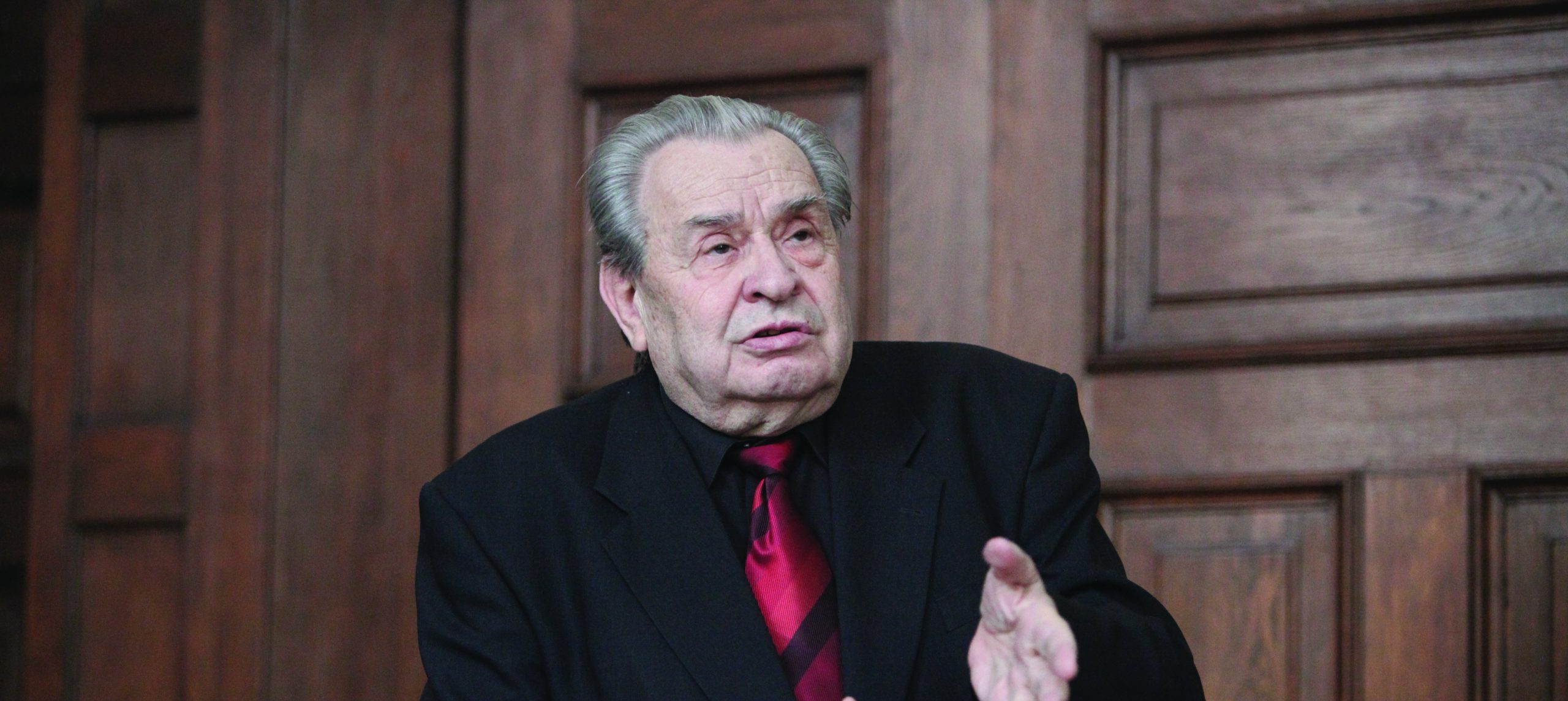
Legendary theatre director and professor of the Faculty of Theatre JAMU Bořivoj Srba would have celebrated his 90th birthday today
A professor of the Faculty of Theatre JAMU, prof. PhDr. Bořivoj Srba, who was born on 19 November 1931 in Bílovice nad Svitavou would have lived to be 90 years old today. The leading Czech theatrologist, theatre historian, theorist and critic, playwright and legendary educator of the Brno Academy of Music and Performing Arts died in May eight years ago in Brno. It was a huge loss for the Czech theatre scene at that time. Bořivoj Srba was a great personality who has significantly shaped and, through his legacy, continues to shape both the artistic form of Czech theatre and the way we think about it.
Professor Srba significantly contributed to the development and excellent professional level of the Janáček Academy of Music and Performing Arts, from where he was, rather paradoxically, uncompromisingly dismissed in 1971 during the sneaky normalisation process for not having joined the Communist Party. And remember that this university of fine arts was his lifelong destiny. In his youth, he attended a Realschule grammar school in Brno (1945–1951) and a school for music teachers at the Philharmonic Society – Beseda Brněnská (1948–1952). He also privately studied music composition and conducting with Rudolf Wünsch and Zdeněk Kaňák. As a boy, he wanted to become a conductor and musician.
Between 1951 and 1955, Bořivoj Srba studied at the Department of Dramaturgy and Theatre Studies at JAMU in Brno. He wrote his diploma and later his doctoral thesis on the topic of the Czech Theatre in the Josef Kajetán Tyl Theatre in Prague in the Lesser Town of Prague (PhDr. 1967). In the years 1954–1959 he was employed as a dramaturge of the Regional Theatre in Brno (Mrštík Brothers Theatre, Brno Municipal Theatre); in 1959–1967, he was the main playwright of the State Theatre in Brno. In the years 1958–1971 he taught at JAMU and in 1961–1971 also at the Faculty of Arts of Jan Evangelista Purkyně University in Ústí nad Labem. From 1963 he was also employed in the Cabinet for the Study of the Czech Theatre at the Institute of Czech Literature in Prague. In the period from 1965 to 1978, he was administratively kept as an employee of the Brno branch, from where he was fired at the urging of regional authorities for his civic attitudes in 1968–1969. He was later re-hired by the Prague Cabinet. In 1990 he received a CSc. degree (through his thesis Poetic Theatre of E. F. Burian) and was appointed associate professor for theory and history of theatre and literature at the Faculty of Arts, Masaryk University (he headed their Department of Theatre and Film Studies until 2000) and associate professor for dramaturgy and authorship at the JAMU dramaturgy Studio D. In 1991, he habilitated his older works at both faculties and was appointed professor. In 1992, he received a DrSc. degree (for a set of works with the joint title “E. F. Burian and his poetic theatre programme).
Bořivoj Srba lectured and researched at the Faculty of Theatre JAMU until his very last days. His influence on the development of Czech theatre and theatre science since the middle of the 20th century has been truly considerable. One can easily see this in the number of excellent scientific publications at JAMU, such as the monumental monograph dealing with the issue of Czech stage design entitled V zahradách Thespidových (In the Gardens of Thespides) or the extensive volume called Vykročila husa a vzala člověka na procházku: Pojď! (A goose stepped forward and took a man for a walk: Let’s go!). On its more than 650 pages, the book summarises paper and pictorial documents, as well as memories.
The professional career of the winner of the Brno City Prize, a city with which he connected his entire life, is admired by theatre actors and theorists alike. The list of Srba’s theoretical works includes more than one hundred and thirty items and the thematic scope of his scientific activities comprised of research into Czech theatre from the 18th century to the present, with an emphasis on the Czech avant-garde, especially the work of E. F. Burian. Srba wrote major book monographs on his work, such as Poetické divadlo E.F. Buriana (Poetic Theatre of E.F. Burian – 1971), the distribution of which was disallowed in the following years, Inscenační tvorba E. F. Buriana (The Staging Work of E.F. Burian 1939-41 – 1980), or the print of Řečí světla (In the Language of Light – 2004). In the last decade of his career, Bořivoj Srba published fundamentally extensive book theatrical monographs summarising the results of his lifelong scientific research. These are mainly the following books: Múzy v exilu (Muse in Exile – cultural and artistic activities of Czechoslovak exiles in London on the eve and during the Second World War 1939-1945 – 2003); the already mentioned Řečí světla (In the Language of Light – the principle of light theatre in the production of Emil František Burian – 2004); Více než hry (More Than Plays – Dramatic works by Ludvík Kundera – 2006); V zahradách Thespidových (In the Gardens of Thespides – on the developmental issues of Czech stage design in the 19th century – 2009), Vykročila husa a vzala člověka na procházku: Pojď! ( A goose stepped forward and took a man for a walk: Let’s go! – foundation and first five years of artistic creation of Mahen’s non-theatre Goose on a String – 2010). Each of these books, some up to a thousand pages long, deserves a separate great deal of attention.
Srba’s most significant dramaturgical achievement was the staging of the Passion of Jesus play entitled Komedie o umučení a slavném vzkříšení Pána a Spasitele našeho Ježíše Krista (Comedy of the Passion and the Glorious Resurrection of our Lord and Saviour Jesus Christ – 1965), directed by Evžen Sokolovský, a production that became one of the most important works of Czech theatre in the 1960s. In 1968, together with his students of direction at JAMU Peter Scherhaufer, Eva Tálská and Zdeněk Pospíšil, he established the Goose on a String Theatre, laid down its programme principles and principles of irregular dramaturgy, which still determine the direction of this quite important studio theatre that earned its reputation and recognition throughout Europe. Bořivoj Srba was also the first artistic director of this ensemble, but as the normalisation advanced, he handed over the management to his younger colleagues and retreated into the shadows so that his person – a target of the normalisation regime – would not jeopardise this theatre and its development. “Nobody taught me more about theatre than Mr Srba,” said one of the most famous faces of contemporary Czech theatre, JAMU graduate and actor Miroslav Donutil. Looking at his professional scope, Bořivoj Srba could be described without exaggeration described as one of the last polymaths. To this day, the Janáček Academy of Music and Performing Arts considers it an honour to have had this great man and an excellent expert in its ranks.
Mgr. Luboš Mareček, Ph.D.
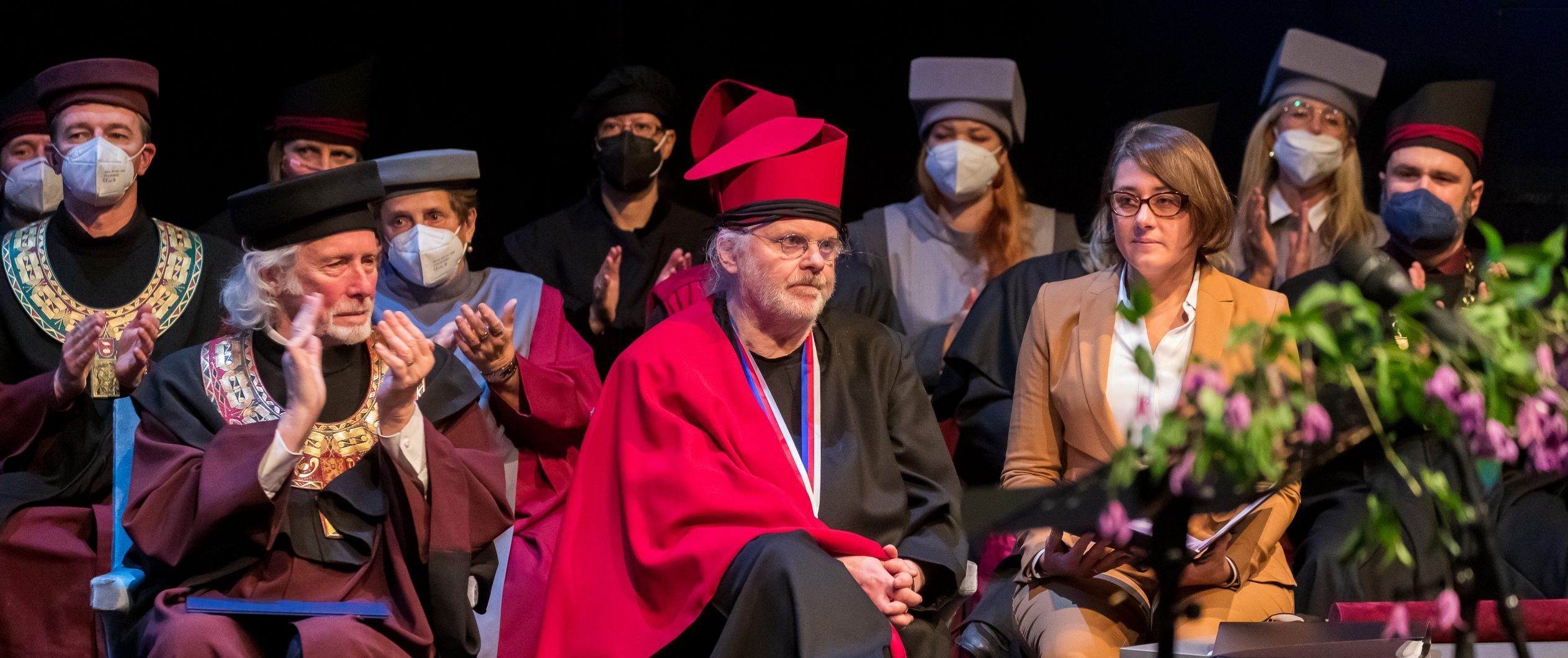
The Janáček Academy of Performing Arts has presented its highest award to the Norwegian dramatist Jon Fosse
The leading international and most frequently played Norwegian dramatist Jon Fosse received an honorary doctorate from the Janáček Academy of Performing Arts one hour before midday today. The ceremonial session of the Artistic Council of the Janáček Academy of Performing Arts took place at the na Orlí Theatre. During the ceremony, the famous Norwegian writer, poet, prose writer and dramatist received the Brno academy’s highest award. Fosse received the Gold Medal of the Janáček Academy of Performing Arts and a diploma with the title Doctor Artis Dramaticae Honoris Causa of the Janáček Academy of Performing Arts. The ceremony was also attended by the Norwegian ambassador to the Czech Republic, Robert Kvile.
“I am a great fan of Janáček’s music and I know his Youth sextet very well, part of which was played during the ceremony,” said the recipient of the new honorary doctorate after the hour-long ceremony. In addition to two movements from Janáček’s work, students from the Brno academy also supplemented the program by reciting a fragment from Fosse’s Death in Thebes in a translation by Karolína Stehlíková. The fragment from the author’s treatment of three of Sophocles tragedies was simultaneously translated into sign language on stage, as was the case for the entire exceptional event. The sixty-two-year-old Fosse admitted that it was his first time in Brno. “I greatly appreciate receiving the highest award from the Janáček Academy of Performing Arts. My Slovak wife, Anna, was born in the former Czechoslovakia, with whose culture and history my two daughters also have extremely close ties.” He added that they both speak Slovak and Norwegian, as well as several other international languages. During his speech of thanks, called the Quiet Speech, he directly emphasised that he feels himself to be a Central European only thanks to the fact that he frequently settled in this region due to his marriage. “I am already slightly Slovak and as such I also feel slightly Czech,” he said at the social gathering.
Fosse is currently the best-known Norwegian dramatist and is often compared with the Norwegian great, Henrik Ibsen. His plays have been translated into more than twenty languages and he has been one of the most frequently played contemporary dramatists not only in his native Norway, but also throughout Europe and on all inhabited continents, where his works have been performed in thousands of productions since the mind 1990s. The Dean of the Theatre Faculty at the Janáček Academy of Performing Arts, Associate Professor Mgr. Petr Francán, gave the laudation for the laureate, entitled In the Mercy of the Moment, to the audience in the auditorium of the school’s theatre. During his speech, he pointed to the fact that the decorated artist, who originally studied as a sociologist, philosopher and literary scientist, has created an exceptionally valuable body of work translated into more than forty languages and containing more than fifty volumes since his debut novel Red, Black of 1983. Fosse has received more than fifty prestigious prizes for his literary activities. Dean Francán mentioned at least the most important of them: “He has received the prestigious Norwegian Ibsen Award twice, namely in 1996 for his play The Name and for As It Was in 2021. In 2005, he received the Order of Saint Olav in his native land. In 2010, he also received the international Ibsen Award and, last but not least, he received the Nordic Council Literature Prize, i.e. one of the most prestigious European literature prizes, in 2015 for his mystical trilogy about love (Wakefulness, Olav’s Dreams and Weariness). However, the Dean also emphasised in his speech that he was not only interested in simply enumerating the awards and dates from the life of this internationally renowned writer. Of the dozens of productions of his plays in the Czech Republic, the Theatre Faculty at the Janáček Academy of Performing Arts has been directly associated with five of them. Francán also relativized the frequently published phrase that claims Fosse as the “new or second Ibsen”. “Fosse is not the second Ibsen. Fosse is the first Fosse … Jon Fosse is also not the new Ibsen. Jon Fosse is permanently focussed on being Fosse …”
The Janáček Academy of Performing Arts has awarded the title of Doctor Honoris Causa since 1993. To date, this title has been received by fifteen internationally renowned artists. By accepting the academy’s highest award, all of the recipients of the honorary doctorates have increased not only the institution’s domestic image, but also its international prestige. “We are convinced that the highest award that we can issue at our alma mater rightly belongs to Jon Fosse,” said the Rector of the Janáček Academy of Performing Arts, Professor Mgr. Petr Oslzlý, who chaired the ceremonial session. Jon Fosse has thus expanded the ranks of the recipients of honorary doctorates at the Janáček Academy of Performing Arts; Rudolf Firkušný, Ludvík Kundera, Václav Havel, Jiří Suchý, Sir Charles Mackerras, Ivan Vyskočil, Zdeněk Mácal, Sir Tom Stoppard, Pierre Boulez, Emílie Vášáryová, John Tyrrell, Milan Uhde, Vojtěch Jasný, Eugenio Barba and Vlasta Chramostová.
Mgr. Luboš Mareček, Ph.D.
PHOTO: RADEK MIČA

Anti-Covid measures at the Janáček Academy of Performing Arts from 1.10.2021
Dear colleagues,
I am hereby requesting the students, academic staff and other employees at the Janáček Academy of Performing Arts to adhere to the following anti-epidemic measures which have been conceived in line with the measures of the Ministry of Health of the Czech Republic for educational and artistic events and the provision of services and on the basis of the experience acquired during the course of the COVID-19 pandemic to date.
The measures have been adopted in the interests of protecting the lives and health of each and every one of us, ensuring that our students can exercise their right to receive an education and protecting the common interests of the Janáček Academy of Performing Arts and those attending it as a whole. I am aware that this involves an infringement of the rights and comfort of each of us to a certain degree. We have carefully considered the measures and acquired support for them from those who lead the academy’s constituent parts, especially the faculties, and I am therefore sure that you will accept them as being suitable and commensurate and that you will adhere to them, because this adherence constitutes a prerequisite for the 2021/2022 academic year, now starting at the Janáček Academy of Performing Arts, to proceed as normally as possible.
The measures are as follows:
- it is necessary to be vaccinated, to have already undergone a case of Covid or to have been tested (see below) in order to be able to enter the premises or events of the Janáček Academy of Performing Arts
- respirators must be worn (see below),
- increased hygiene (see below),
- maintain a distance of 1.5 m between individuals, if possible,
- any individuals displaying symptoms of COVID-19 or who have tested positive prior to the expiry of the isolation period are prohibited from entering the Janáček Academy of Performing Arts.
These measures, which apply throughout the entire Janáček Academy of Performing Arts, do not replace the obligation to adhere to the measures stipulated by the Ministry of Health of the Czech Republic or the Regional Hygiene Office of the South Moravian Region, etc. Given the “short shelf life” of the government’s measures to date, we will not currently be restarting the Janáček Academy of Performing Arts corona-web, which was demanding to both create and follow. The individuals leading the appropriate constituent parts or departments at the Janáček Academy of Performing Arts have been and will continue to be informed of the government’s measures (for example, for public concerts and performances and accommodation services).
1. Entry into the premises of the Janáček Academy of Performing Arts based on a vaccination, a completed case of Covid or a test
I hereby task the individuals leading the academy’s constituent parts with ensuring the adherence to the Vaccination – Illness – Test rules for the entry of students and staff into the premises of the Janáček Academy of Performing Arts, excluding the Publishing House’s store and the publicly accessible parts of the Library, from 1 October 2021 and with doing so either in person or using authorised employees delegated for the task. This is understood to mean:
- Vaccination; at least 14 days have passed since the completion of the vaccination program. A vaccination is substantiated with a certificate.
- Illness; a laboratory confirmed case of the COVID-19 illness, the expiry of the isolation period and up to a maximum of 180 days from the first positive POC antigen test for the antigen of the SARS-CoV-2 virus or RT-PCR test for the presence of the SARS-CoV-2 virus. The fact that the individual in question has had Covid is demonstrated by means of an SMS message about a positive test from a collection centre or a certificate.
- Test; a test is demonstrated by means of a report from a collection centre or a certificate, unless stated otherwise – a negative result
- an RT-PCR examination for the presence of the SARSCoV-2 virus up to a maximum of 7 days previously,
- an ART (antigen rapid test) for the presence of the antigen of the SARS CoV-2 virus which
- was performed by a medical professional up to a maximum of 7 days previously (note: the measure from the Ministry of Health stipulates a shorter 72-hour deadline for the test validity in the case of the students accommodated at the Astorka dormitory)
- was performed under the supervision of a medical professional via an online service up to a maximum of 24 hours previously,
- is performed on site (self-testing).
Testing for employees and students performed by the Podané ruce Society was renewed at the Theatre on Orlí Street from 4.10.2021, but it was terminated as of 25.10. due to minimal interest. Continue using the public testing sites.
Students and employees will upload their reports and certificates substantiating their compliance with the aforementioned requirements into the Coronavirus application on the Janáček Academy of Performing Arts information system.
2. Wearing respirators
All individuals are obliged to wear a protective covering over their airways (nose and mouth), specifically a respirator without an exhale valve corresponding to the FFP2 or KN 95 standard or any other equivalent protective equipment
- in the indoor areas of the buildings used by the Janáček Academy of Performing Arts,
- including audience members present at concerts and any other musical, theatrical, film or other artistic performances,
- during participation at congresses, educational events and in-person examinations,
- during participation at any public or private events, at which there are more than 10 people in a single place at the same time or 30 people, if they are outdoors.
Exceptions to the aforementioned obligation to wear a protective covering over the airwaves apply to:
- students and academic staff during any educational activities, the nature of which does not enable the wearing of any such respiratory protection (especially physical education, singing or the playing of a wind instrument),
- students who are sitting at desks or are otherwise spaced out during classes,
- academic staff when teaching,
- the examined and the examiner during a university examination, provided all the individuals maintain a social distance of at least 1.5 metres from one another,
- those accommodated in rooms at the Astorka,
- individuals performing their work in a workplace during working hours or performing similar activities outside regular working hours, provided the activities in question are performed in one place without the presence of any other individuals than a colleague,
- individuals performing an authored work (for example, theatrical, dance or music performances), individuals lecturing and individuals involved in the creation and production of audiovisual works or programs,
- moderators, editors and other individuals appearing in radio, television and other programs,
- any individuals throughout the period that is essential for the creation of their portrait photography, including joint photographs with members of their households and other close individuals, and any other involved individuals throughout the period that is essential for taking photographs at photoshoots organised by the Janáček Academy of Performing Arts.
The individuals in executive positions at the Janáček Academy of Performing Arts will ensure that the employees are equipped with sufficient numbers of respirators for each work shift; this will not apply, if an employee does not come into any physical contact with any other individuals (i.e. remote working away from the employer’s facilities).
3. Increased hygiene
The provision of hand disinfectant, the regular disinfection of any contact surfaces, the maximum possible air circulation with fresh outdoor air (natural ventilation, the HVAC system or recuperation) without any air recirculation (via moisture exchangers in the case of recuperation, there is no contact between the outgoing and incoming air), rubbish bins with lids and so on.
I respectfully request anybody who is unable to comply with the aforementioned measures for any reason to contact the head of the department using the given premises at the Janáček Academy of Performing Arts (the deans of the faculties, the managers of any other sections) and to reach an agreement with them on the conditions for their entry into the premises of the Janáček Academy of Performing Arts.
Professor Mgr. Petr Oslzlý manu propria
The Rector
